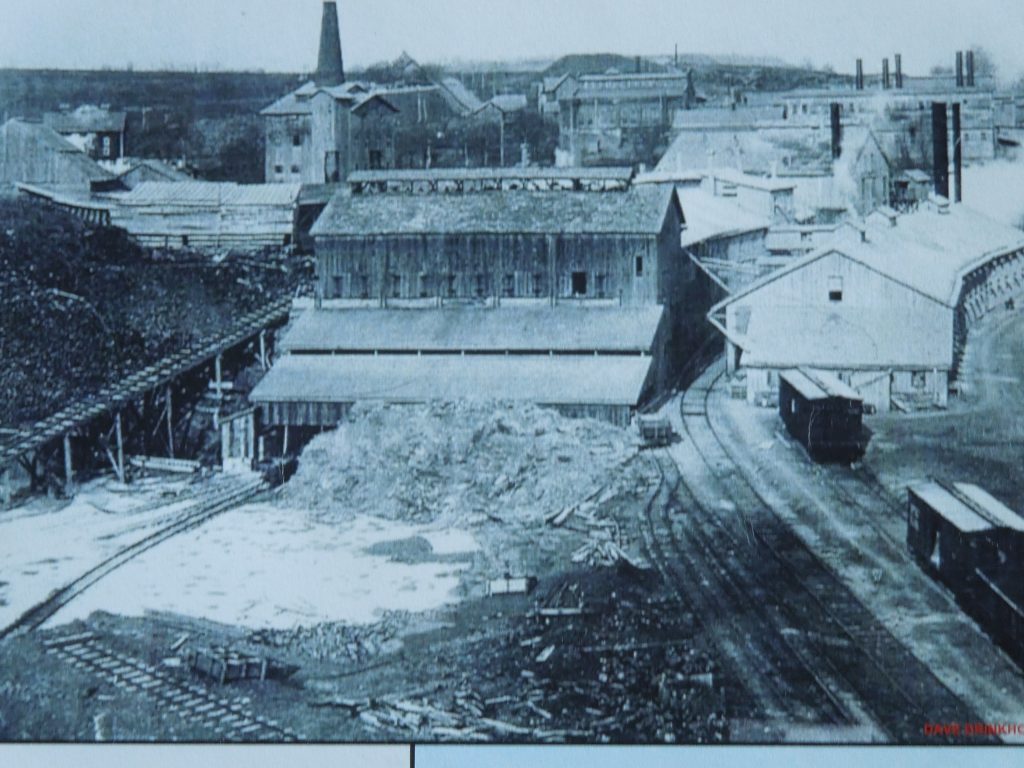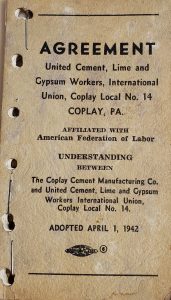
Inflation is a concern of everyone, so we thought we would look at wages in 1942.
We have a labor agreement from Coplay Cement Manufacturing Company and the United Cement, Lime and Gypsum Workers International Union Local No. 14, Coplay.
I guess I will attend the negotiation meeting. Here are some names our older readers may remember:
The union: Raymond W. Ambearle, president; committee, Ralph Brader, John Lohr, John

Bundra, Charles Walockovitz, James Kern, Edward Deichmeister and Ralph Proctor.
The company representatives were M.G. Gruenwald, president, and D.J. Uhle, vice president.
The agreement states, as of April 1, 1942, all hourly pay rates increase 5 cents. Packers receive a piece-rate increase, 8 cents per 100 c.
The union sick benefit committee stated benefits as $2.50 a week for 15 weeks. A doctor’s certificate must be provided at time of notice.
Even though the year is 1942 – a war year – these rates may shock some of our younger readers.
Quarry:
Labor, 70 cents
Blaster, 80 cents
Truck driver, 83 cents
Repairman, 3rd, 86 cents
Repairman, 1st, 96 cents
Electrician, $1.08
Shovel operator, $1.08
Foreman, $1.08
Mill:
Labor, 70 cents
Beltman helper, 74 cents
Truck driver, 76 cents
Stone house foreman, 78 cents
Head oiler, 80 cents
Crane operator, 89 cents
Kiln burner, 90 cents
Electrician, 1st, 90 cents
Mill foreman, $1.07
Clean silos, entering, $1.13
A laborer supported a family on $28 a week; a mill foreman, $42.80 a week; and blasters, $32 a week.
In 1942, the consumer purchased a loaf of bread for 9 cents; a new car, $920; typical house, $3,775.
The average annual income was $1,885.
During World War II, a number of products, including gasoline, were rationed. It was almost impossible to purchase a new automobile. Butter, meat, sugar and many other items were in short supply.
Many of the jobs listed in the labor contract no longer exist in our cement plants. Automation has increased production with less manpower. Control rooms have replaced kiln burners, millers and many others.
Were the “good ’ol days” better?
We’ll have more in two weeks.








